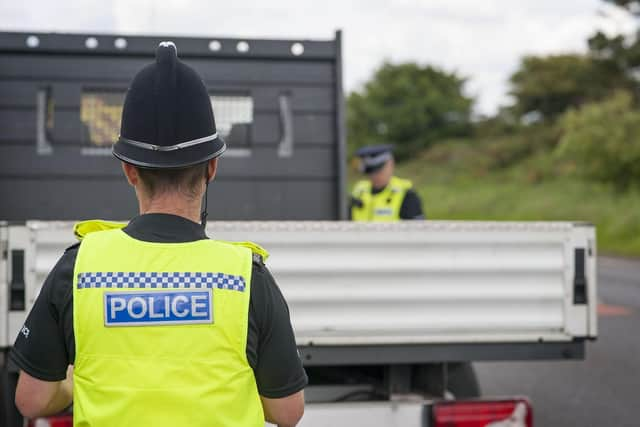The time is right for a new focus on tackling rural crime - Dr Alan Billings
I heard what people were saying and so in my Police and Crime Plan I asked for a focus on rural and wildlife crime.
The police responded to this, producing a rural and wildlife strategy and proposing a team of specialist officers. For various reasons this did not work out quite as smoothly as we all hoped, not least because officer numbers were for a while too low to allow for the growth of such a team. This, of course, further fuelled the perception that the rural areas were being overlooked. Now, with the gradual increase in the number of officers, the time is ripe for a ‘re-set’ and a new focus on rural crime.
Advertisement
Hide AdAdvertisement
Hide AdSo for the last couple of weeks, members of my staff and the police have held a meeting in each district to explain what the force is now doing, to hear what those who live and/or work in the countryside feel about the proposals, and to hear about their experiences of crime and policing. Meetings have been held in the Barnsley, Doncaster, Rotherham and Sheffield districts.


The audiences have been very diverse – farmers, landowners, gamekeepers, villagers, people with businesses in the countryside, members of Neighbourhood Watch, a Victim Support group and so on. I attended the Rotherham meeting at the Lifewise Centre, Hellaby.
We had to hear a certain amount of anger and frustration from farmers in particular about what they saw as poor service in the past. But the meeting quite quickly realised that there is a will on the part of the police to get things better.
The police explained what they are doing. They have reinvigorated the rural and wildlife team. They have brought the police bikers into that team. They have trained some 40 officers across all districts as rural crime team specialists, alongside their main job. They talked about some of the equipment they use – the type of off-road bikes they use to get across country quickly and the drones that are becoming more available. Using drones, the police can spot people acting suspiciously from a distance and without being seen themselves.
Advertisement
Hide AdAdvertisement
Hide AdThe police also spoke about how farmers can help the police and themselves by creating their own bespoke Whatsapp groups. The sergeant, who came from Derbyshire where this already happens, gave examples of how if a crime is committed on a particular farm, the subsequent movements of the offenders can be quickly plotted via a Whatsapp group whose members see them in new places as they move on, and this intelligence can be sent to the police. It is intelligence that is real time and enables the police to get to the right place to apprehend the criminals.
In turn, the members of the audience raised issues that they wanted the police to think about. So, for example, a number of questions were about whether the people who receive the 101 calls from farmers – the call handlers – were sufficiently trained to understand the serious nature of what was sometimes being reported.
A shortened version of the Police and Crime Commissioner for South Yorkshire’s latest blog post.